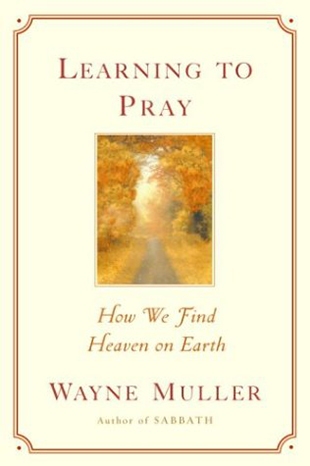"Within these few words, we can discover all we will ever need to learn about how to pray," writes Wayne Muller about the Lord's Prayer. "Every line is an astonishing gift of wisdom, a subtle teaching that is hidden, as in a Chinese puzzle-box, gently and gradually uncovered and understood through a lifetime of prayerfulness." The author is a therapist, minister, former spiritual care consultant at the Betty Ford Center, and founder of Bread for the Journey, a nationwide agency that supports community-based philanthropy. With the same spiritual sensitivity and ecumenical flavor that he brought to his excellent book Sabbath, Muller spells out the manifold meanings and peculiar epiphanies in this prayer Jesus taught to his disciples.
Nowhere in the Lord's Prayer do we find the word I. "Throughout this prayer, we hear the echo of our collective yearning — our Father, our bread and our trespasses." Jesus is honoring the deep connections that tie us to others, a feeling of kinship that is needed now more than ever. He also shakes up our conventional thinking when he reveals that heaven is not a place, but a presence that shines through people, experiences, and the best moments of our lives.
We extend the kingdom of God when we pay attention to small things. Every parent knows children are responsive to the little acts of kindness that demonstrate our love — a hug before they leave for school, or an affirming word when it is sorely needed. People of all ages respond similarly: "When people share a memory of some small gesture that healed them, it is always from someone who listened, someone who was present and attentive, someone who simply saw them as they were." In one touching vignette, Muller writes about a friend who left a lucrative massage practice to work with the homeless. For her new clients, many of them neglected and unloved people, her touch not only soothed their aches and pains, but brought them a bit of heaven. For the woman herself, this ministry of love was prayer.
Muller has many interesting things to say about forgiveness, but he hits high stride with his eloquent discussion of the phrase in the Lord's Prayer "deliver us from evil." He ponders the necessity for all of us to acknowledge our complicity in evil rather than to be so swift to rail against the wrongdoing and malevolence of "others." But most importantly, he challenges us not to have a hard heart, which he sees as the source of much pain and suffering. Muller harvests the riches of the Lord's Prayer without slighting either its simple elegance or the complexities of human nature.
